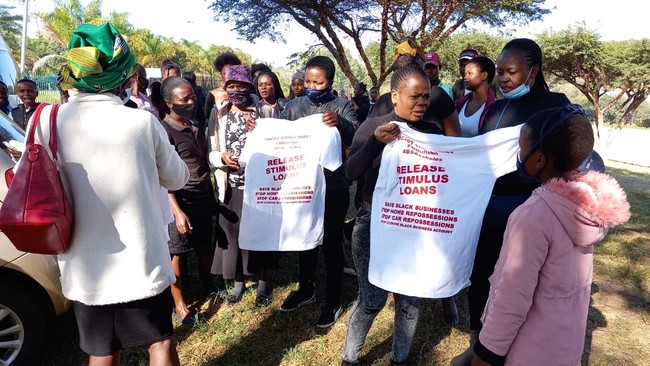South African banks faced intense scrutiny in Parliament on Tuesday as MPs from various political parties voiced sharp criticisms over alleged discriminatory practices, high fees, lack of transparency, and sluggish transformation in the financial sector. Representatives from major banks, including Standard Bank, FNB, Absa, Investec, Nedbank, and Capitec, along with regulatory bodies such as the South African Reserve Bank (SARB), the Financial Sector Conduct Authority (FSCA), and the Banking Association South Africa (BASA), attended the heated session to address mounting concerns from both parliamentarians and consumers.
MK Party MP Sanele Mwali accused banks of perpetuating a “neo-apartheid system” by selectively closing accounts, arguing that financial institutions appear to favor certain companies while targeting others without clear justification. He pointed to high-profile cases involving companies like Tongaat, Steinhoff, and Glencore—embroiled in controversies yet allowed to maintain their banking relationships—while businesses like Sekunjalo faced abrupt account closures. Mwali criticized this disparity, saying it undermines efforts to promote inclusivity and transformation in post-apartheid South Africa. “What you do with the privileged is not what you do with the marginalized,” he said, calling for policies that differentiate between smaller banks and large financial institutions to protect vulnerable clients.
Adding to the critique, MK Party MP Brian Molefe demanded urgent legislative intervention to curb arbitrary account closures, labeling the practice as irrational and lacking oversight. He expressed concern that banks often cite foreign laws to justify their actions, with no formal adjudication body in place to hold them accountable. Molefe questioned BASA’s role, suggesting the organization has failed to ensure fairness and transparency. “Shouldn’t banks be subjected to the highest standards, given their critical role in the economy?” he asked. Molefe emphasized that banking is a public service, and as such, financial institutions must be held to stricter regulations to prevent exclusionary practices that disproportionately affect marginalized communities.
EFF MP Omphile Maotwe echoed these sentiments, targeting SARB and FSCA for their perceived inaction on issues like high bank charges and discriminatory policies. She announced her party’s intention to bring the nationalization of the Reserve Bank to Parliament, advocating for the creation of a state bank to challenge the dominance of private institutions. “We need a true monitoring policy,” Maotwe stated. “It cannot be that the Reserve Bank is only working on inflation while ignoring the broader issues in the sector.” She criticized the FSCA for being ineffective and accused BASA of being too closely aligned with the banks, suggesting that regulatory bodies were failing in their mandates to protect consumers.
Chairperson of the parliamentary standing committee on finance, Joe Maswanganyi, stressed the urgency of addressing these issues. In his opening remarks, he emphasized that the country cannot afford a financial sector that continues to exclude the majority from mainstream economic participation. He highlighted structural inequalities that persist within the sector, pointing to poor performance in areas like black ownership, enterprise development, and access to financial services for historically marginalized communities. “BASA and individual banks must be held accountable for their shortcomings in transformation targets,” Maswanganyi asserted, calling for concrete commitments beyond corporate rhetoric.
Responding to the allegations, BASA representative Bongi Kunene denied claims of discriminatory practices within the banking sector, stating that none of BASA’s members had been found guilty of racism. Kunene insisted that regulations clearly prohibit such behavior and that the process for closing accounts is transparent. She suggested that public misunderstandings stem from a lack of financial education, noting that clients could seek recourse through the financial Ombudsman if they disagreed with account closures.
SARB’s head of policy, statistics, and industry support, Olaotse Matshane, indicated that broader questions regarding the Reserve Bank’s mandate would be addressed by Governor Lesetja Kganyago at a later date. Meanwhile, FSCA deputy commissioner Katherine Gibson acknowledged the need for stronger regulatory frameworks and affirmed the authority’s commitment to transformation through the upcoming Conduct of Financial Institutions Bill.
As Parliament pushes for reforms to ensure fairness and inclusivity in the financial sector, the heated exchanges highlight the growing frustration among lawmakers over what they perceive as a lack of accountability from the country’s banking giants. The call for urgent legislative changes signals a possible shift towards greater regulation and oversight in South Africa’s financial landscape.
